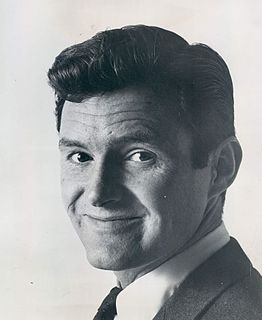A Quote by Jay Roach
The first thing we noticed was how flamboyant [Dalton] Trumbo was in real life.
Quote Topics
Related Quotes
I play Edward G. Robinson [in Trumbo], who was a close friend and a co-worker of Dalton's [Trumbo]. They worked together on at least one or two screenplays. A lot of these stories take famous people and show you who they are behind the scenes, which is kind of fun. One of the things about getting to play Edward G. Robinson was learning who the man was away from his movie-star exterior.
Hedda Hopper was a better direct opponent to [Dalton] Trumbo. We wanted to use Trumbo's battles to represent the larger battles, so the audience could understand the personal sacrifice he went through and the personal damage to his family. The choices were about who were the best representations of his antagonists, which is why we chose as we did.


























